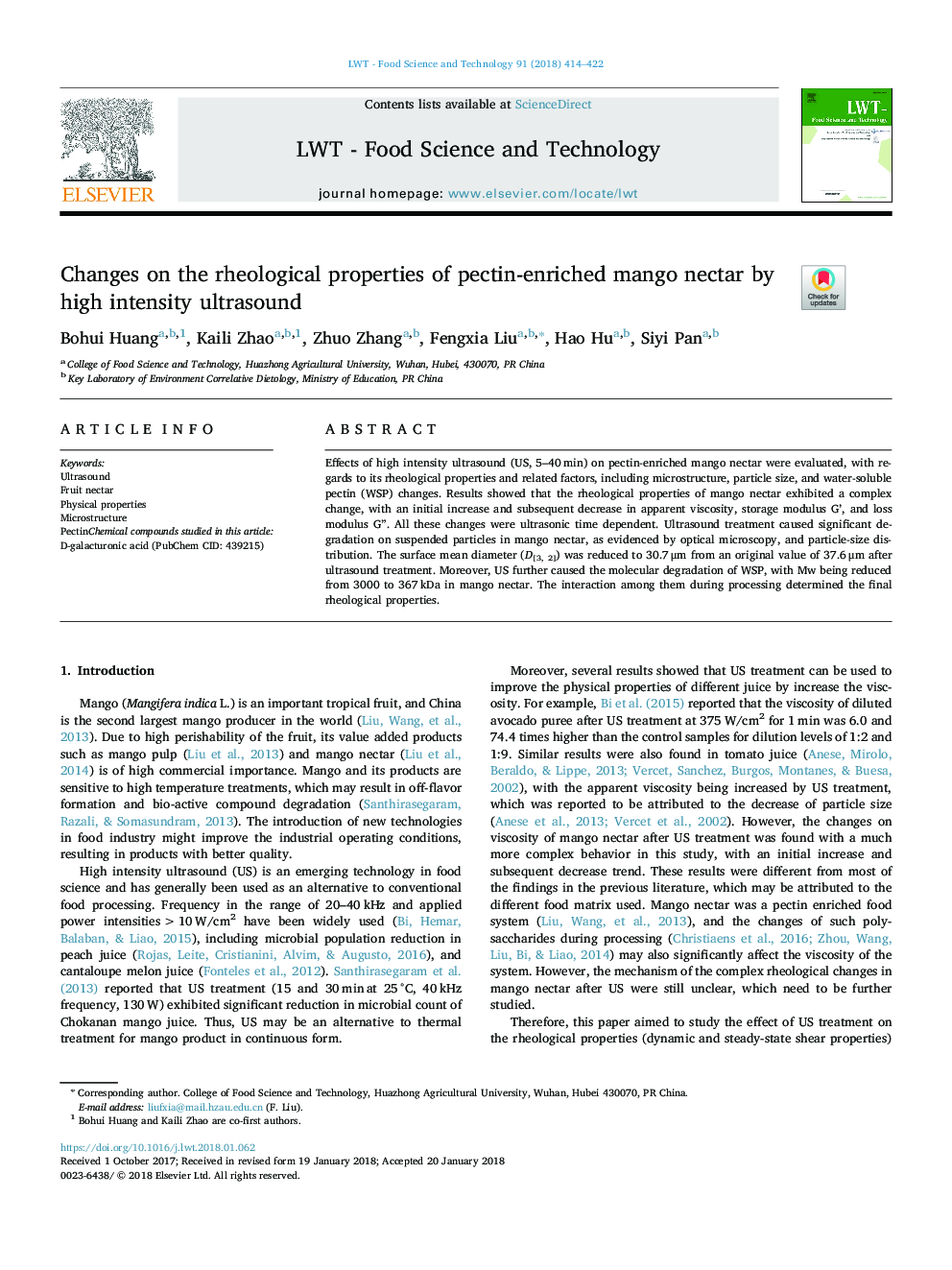| Article ID | Journal | Published Year | Pages | File Type |
|---|---|---|---|---|
| 8891845 | LWT - Food Science and Technology | 2018 | 9 Pages |
Abstract
Effects of high intensity ultrasound (US, 5-40â¯min) on pectin-enriched mango nectar were evaluated, with regards to its rheological properties and related factors, including microstructure, particle size, and water-soluble pectin (WSP) changes. Results showed that the rheological properties of mango nectar exhibited a complex change, with an initial increase and subsequent decrease in apparent viscosity, storage modulus G', and loss modulus G”. All these changes were ultrasonic time dependent. Ultrasound treatment caused significant degradation on suspended particles in mango nectar, as evidenced by optical microscopy, and particle-size distribution. The surface mean diameter (D[3, 2]) was reduced to 30.7â¯Î¼m from an original value of 37.6â¯Î¼m after ultrasound treatment. Moreover, US further caused the molecular degradation of WSP, with Mw being reduced from 3000 to 367â¯kDa in mango nectar. The interaction among them during processing determined the final rheological properties.
Related Topics
Life Sciences
Agricultural and Biological Sciences
Food Science
Authors
Bohui Huang, Kaili Zhao, Zhuo Zhang, Fengxia Liu, Hao Hu, Siyi Pan,
